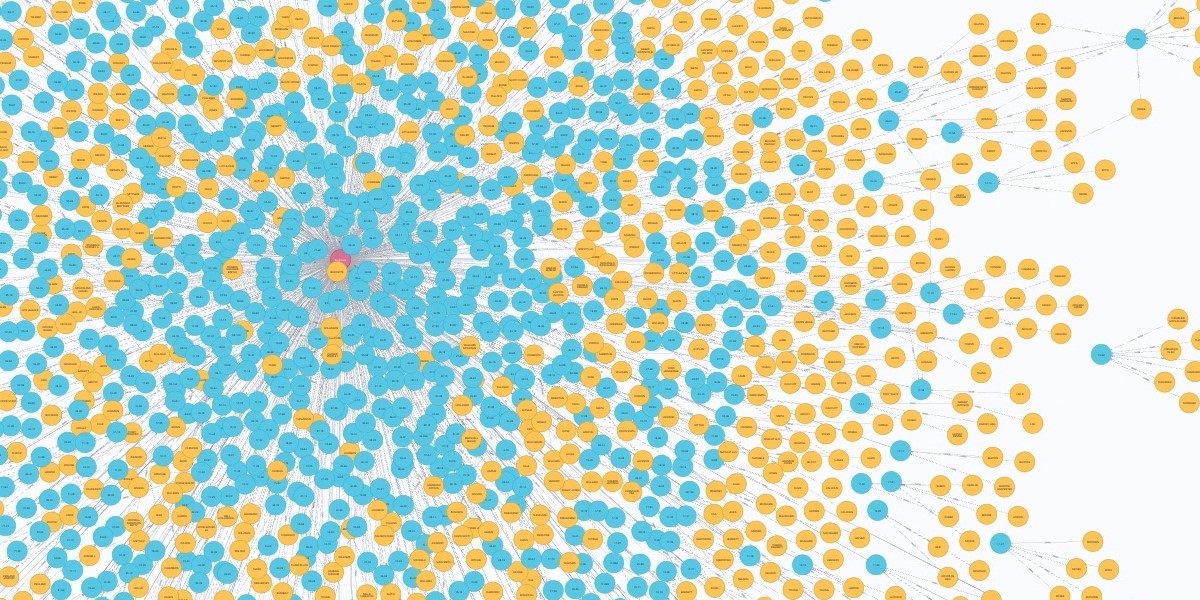19 UMD students participating in AICollaboratory summer courses aid Asheville Reparations Commission

Knowledge graph for Southside owners harmed by urban renewal, by Nick de Raet
Over a 6-week period this summer, 19 University of Maryland (UMD) students engaged in a series of single-credit experimental courses that explored the future of library and archives collection processing:
“The course material not only helped me bridge the gap between theory and real-world application but also enabled me to delve into the concept of Generative AI and various LLMs.” – Imdad Baloch, College of Education, International Education Policy PhD student
- INST608A focused on spatial representation and analysis. This course was about putting people and places extracted from archival collections on a map. Students experimented with geocoding, geolocating, georeferencing, vectorization, and spatial analysis. Tools used included open source QGIS.
- INST608C focused on network representation and analysis. This course was about exploring graphs, a powerful way at looking at relationships between people, places, and events found in library and archival collections. Students experimented with graph data modeling, knowledge map building, graph querying, graph visualization, graphs at scale, and graph algorithms. Tools used included NoSQL Neo4j.
- INST608G focused on generative AI and Large Language Models (LLMs). This course was about harnessing advances in generative AI and Large Language Models (LLMs). Students experimented with prompt engineering, advanced data analysis, image analysis, and retrieval augmented generation (RAGs). Tools used included Google NotebookLM and OpenAI ChatGPT4.o.
Hosted by the multi-institional INFO affiliated Advanced Information Collaboratory (AICollaboratory), the courses provided an opportunity for the participating students (graduate students from the UMD College of Information, College of Education, and College of Agriculture and Natural Resources) to look at cultural content and data from the AICollaboratory’s “Measuring the Impact of Urban Renewal” project, led by UMD College of Information professor and AICollaboratory founder/member Richard Marciano. Data from this project was recently contributed to the North Carolina Asheville Community Reparations Commission as evidence to help determine reparations for urban renewal injuries.
“I am very grateful for the opportunity to have contributed, in a small way, to the work being done in Asheville. I am hopeful (and thankful) that our work may be of some help to the Asheville community, and perhaps to other communities as well.” Nick de Raet, College of Information, MLIS Student
Midway through the summer courses, on June 17, 2024, the Asheville Community Reparations Commission voted in support of a reparations request to the city on “Settlement of Urban Renewal Injuries (Property Value Lost)” amounting to $148K to respective families/businesses harmed by the displacement caused by urban renewal. This adopted recommendation, which made history in Asheville, referenced a preliminary list of the names of individuals and businesses in the Southside neighborhood impacted and eligible for cash payments.
Students in INST608A-C-G summer course series, using innovative techniques including genAI content extraction, graph generation & querying, and spatial analysis, were able to identify some 19 additional businesses that had not been recorded before.
These single-credit experimental summer courses have uncovered new paths for future courses and elicited emerging themes.
The original article, with additional information and student project examples, was posted by the AICollaboratory on July 9, 2024.